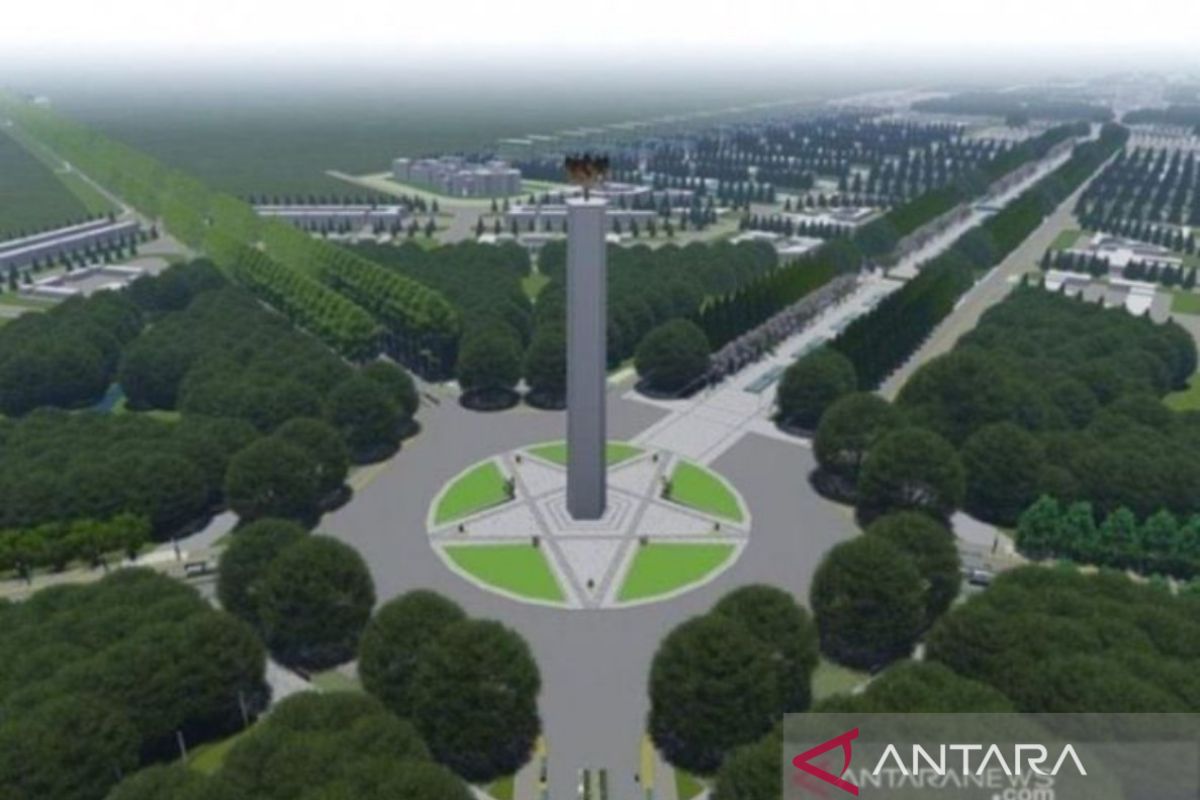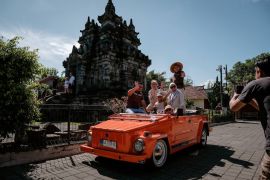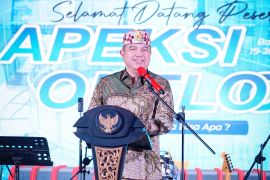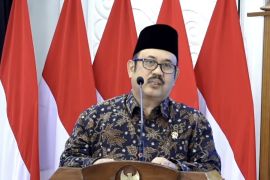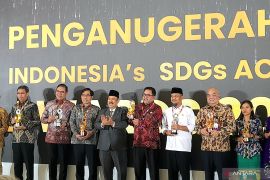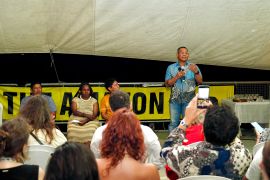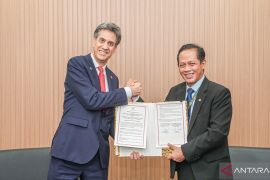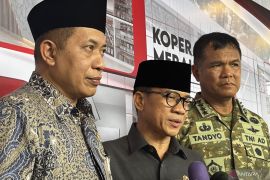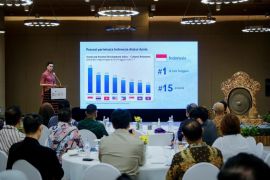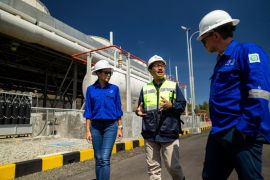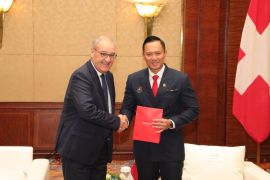President Joko Widodo (Jokowi) also appointed Bambang Susantono as head of the National Capital Authority and Dhony Rahajoe as the deputy head on Thursday (March 10). The capital authority leadership will be the future head of Nusantara City and, before the completion of the new capital development, oversee the new capital's construction and relocation.
The president lauded Susantono and Rahajoe’s expertise and experiences that are highly relevant to the new capital development. While Susantono has a broad background in civil engineering, transportation, and urban planning, Rahajoe has a year-long experience as a property developer in a private company.
In the meantime, the government continues to propagate its commitment to developing Nusantara as a green city, and the new capital's construction would take into account the natural condition at the new capital site.
Promoting the new capital as a future green city aims to respond to the public's concerns and criticism that the new capital would significantly affect the virgin natural condition of Kalimantan, which is known as the nation’s lungs akin to the Amazon forests for the global community.
“We must not perceive that our efforts to relocate the capital would harm the forests,” President Jokowi stated while affirming that the government is also committed to ensuring 70 percent of the capital area would be reserved as a green area, and natural resources would be used to provide 80 percent of the electricity in the capital.
The president and government’s commitment for a green new capital must be translated into a concrete form, which is in the form of a legal basis. Through the law that the legislature has passed, we can only by then see and assess the extent of fulfillment of the commitment in reality.
Related news: Susantono, Rahajoe expected to develop IKN as futuristic city: DPR
Related news: IKN authority head, deputy head make great pair: President
Legal basis in developing a green city
The National Capital Law passed by DPR RI has provided the legal basis for Nusantara to be developed as a future green forest city.
Article two of the National Capital Law envisioned the new capital to be a sustainable city in the world, the engine of the national economic growth in future, and the national symbol that represents the Indonesian nation’s diversity. Designating the sustainable city vision in the first point is sufficient to emphasize the goal as the primary aim for the capital city.
The law further defined the sustainable city mission as an effort to create a city that could prudently manage local resources and provide effective service on the efficient utilization of water and energy resources, sustainable waste management, integrated transportation, healthy dwelling and environment, and synergic natural environment management.
The law also stipulates that Nusantara will be a “city inside a forest” by ensuring at least 75 percent of the capital area would remain as a green area and that the new capital masterplan would be developed through a sustainable development approach and harmonize the natural ecology, existing regions, and established social systems.
Moreover, according to the master plan of the new capital attached to the National Capital Law, the forest city, sponge city, and smart city concepts will be the three main principles for development of the new capital.
The forest city principle means that the new capital is expected to be connected by nature and dominated by forests that could maintain its ecological functions, including absorbing carbon emissions and conserving environmental diversity.
The new capital would also be developed to be a low-carbon city with sustainable water resources management and the adoption of local wisdom on environmental management.
According to the master plan, Nusantara is expected to become a mega sponge to enhance the water quality and bolster water management and utilization. Development of the new capital as a sponge city aims to maximize rainwater absorption, reduce surface runoff, and enhance rainwater harvesting.
Concrete commitments to protect forests, wildlife
Creating a capital city from complete scratch would be a mammoth task that will make city planners scratch their heads on a routine basis, especially as they would be responsible to ensure that hundreds of thousands of hectares of land plotted for the new capital area would neither be wasted nor misused.
Apart from ensuring that Nusantara would be a new green city through the legal basis, the government has affirmed repeatedly on various occasions that concrete steps to protect forests and the environment would be taken in concert with the development of the new capital.
President Joko Widodo has said that the new capital would be Indonesia’s response to address the effects of climate change that has affected all countries in the world. He also vowed that the first stage of the new capital's construction will involve reforestation by replanting various trees to revitalize forests affected by the development.
“The new capital is Indonesia’s response with regard to its commitment in tackling the effects of climate change by achieving carbon neutrality or net zero emissions and 100-percent renewable energy by 2060,” the president stated.
Meanwhile, Minister of Environment and Forestry Siti Nurbaya Bakar, in an audience with members of Commission IV of DPR RI, informed legislators that wildlife corridors would be developed in the northern and southern part of the new capital to protect forests and wildlife around the future capital.
She also confirmed that the corridors would be developed by reforestation and forest enhancement to maintain the original natural conditions and construction of underpasses or flyovers to reduce land disturbance that may affect wildlife.
Consistent with the ministry’s stance, Presidential Staff Office (KSP) expert Wandy Tuturoong also affirmed that the government had conducted multiple types of research on the strategic environment to protect the natural life and forests in the new capital.
Tuturoong said that the research report recommended five road maps to improve environmental conditions, with the two recommendations being to improve the wildlife environment and restore the tropical rainforest ecosystem.
“We will not only protect the orangutans in the new capital region but also other animals, such as migratory birds, leopard cats, crocodiles, clouded leopards, langurs, and turtles (would be protected as well),” the KSP expert remarked.
Indeed, to set a promise is merely the first step, which the government has materialized by extensively enumerating its commitment to creating a green forest city in the National Capital Law and its annexes.
The next step would be to maintain the commitment to realize the green capital city vision that will be the pride of the nation in the future.
Related news: IKN becomes breakthrough to realize Indonesia's Vision 2045: BIN
Related news: Capital city Nusantara development begins with reforestation: Jokowi
Translator: Nabil Ihsan
Editor: Sri Haryati
Copyright © ANTARA 2022
